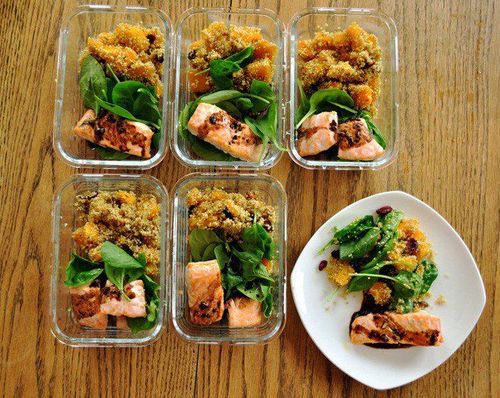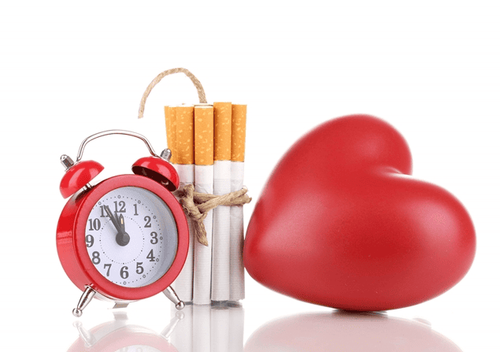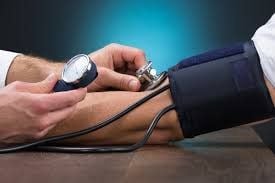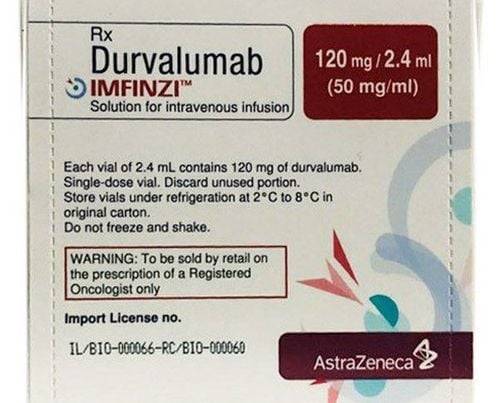This is an automatically translated article.
Posted by Doctor Tran Thi Diem Trang - Respiratory Internal Medicine Doctor - Department of Examination & Internal Medicine - Vinmec Central Park International General Hospital.
The World Health Organization estimates that nearly 700 million people, almost half of the world's children, are living in air polluted by tobacco smoke. Tobacco smoke contains more than 4000 chemicals. In which there are more than 200 types that are harmful to health, including narcotics and toxic substances. Every year, tobacco and waterpipe tobacco kill millions of people around the world. Smoking is a preventable cause of illness and death. With the effects on smoking cessation is extremely necessary.
1. Why should not smoke?
Smoking 1 cigarette means you have lost 5.5 minutes of your life. The average life expectancy of smokers is 5 to 8 years shorter than that of non-smokers. Smoking increases mortality from 30 to 80%, mainly from cancers (lung cancer), chronic obstructive pulmonary disease, cardiovascular diseases .... The degree of increase in risk depends At the age of starting smoking (the earlier smoking, the higher the risk), the average number of cigarettes smoked in packs/year is calculated by multiplying the average number of packs smoked per day by the number of years smoked (the number of cigarettes smoked per day). The higher the number of packs per year smoked, the higher the risk) and the longer the smoking period, the greater the risk.
Infants and young children who regularly breathe secondhand smoke will get the following diseases:
Increase the rate of lower respiratory tract infections (such as bronchitis, pneumonia) and otitis media Increase the symptoms of diabetes Chronic respiratory disease (such as asthma) Decreases lung growth and increases the risk of sudden infant death. Children who smoke passively increase the risk of cardiovascular disease in adulthood and decrease the nerve center that directs behavior, while women who do not smoke but breathe secondhand smoke during pregnancy have a higher risk of developing cardiovascular disease. can cause changes in fetal development, miscarriage, premature birth or low birth weight babies.
2. Some physiological and mental changes after quitting smoking
| Triệu chứng | Nguyên nhân | Cách đối phó |
| Đói thuốc | Cơ thể của bạn đã quen với 1 lượng nicotine, khi lượng đó giảm đi sẽ khiến bạn có cảm giác đói để bạn hút thuốc. | Cảm giác cực kỳ thèm thuốc thường chỉ kéo dài 1-5 phút. Hãy làm 1 cái gì đó đến khi cảm giác đó giảm đi – uống nước, tập thở sâu... |
| Đầu bồng bềnh, mất tập trung | Điều này có thể do thiếu nicotine trong máu. Hãy nhớ là bộ não của bạn đã quen làm việc với sự có mặt của nicotine và bây giờ phải tập làm việc không có nicotine. | Hãy làm việc từ từ thôi, đừng quá cố gắng trong vài ngày. Tập thể dục nhiều hơn, làm việc thời gian ngắn hơn xen kẽ với thời gian giải lao nhiều hơn. Chú ý xem mình ăn uống có bình thường không? |
| Ho | Đây là phản xạ tự làm sạch của phổi. Sau khi ngừng hút thuốc những lông mao giúp làm sạch phổi bắt đầu hoạt động trở lại sẽ đẩy đờm từ những phế quản nhỏ lên các phế quản lớn rồi được ho khạc ra ngoài. | Nhấp từng ngụm nước ấm sẽ có thể làm giảm ho và sẽ tự hết ho sau đó 1 thời gian sau 1 đến 2 tuần. |
| Căng thẳng và cáu kỉnh | Bởi vì lượng nicotine trong máu giảm, thành phần hoá học trong người bạn thay đổi. Cơ thể bạn đang cố gắng đối phó với những sự thay đổi đó. Vì vậy nó làm cho bạn cảm giác căng thẳng và cáu kỉnh. | Đi bách bộ, ngâm trong nước ấm, và làm vài động tác thư giãn. Nói chuyện với ai đó về cảm giác của mình. |
| Buồn rầu, trì trệ | Nicotine là chất hoá học kích thích tế bào não tạo nên cảm giác hưng phấn. Phải mất một thời gian để cơ thể của bạn sản xuất cân bằng chất hoá học gây hưng phấn tự nhiên thay cho chất nicotine. Trong thời gian điều chỉnh lại này bạn có thể có cảm giác buồn rầu. | Một bài tập đơn giản như là đi bộ nhanh 5-10 phút chẳng hạn có thể làm bạn thay đổi. Tình trạng này sẽ hết dần dần, không nên lo lắng. |
| Cảm giác chóng đói | Chuyển hoá trong cơ thể bạn đang trở lại bình thường | Hãy ăn những bữa nhỏ ít năng lượng như là bỏng ngô, cà rốt, quả mận hay cái gì đó. Cố gắng ăn khoảng 6 bữa nhỏ và uống nhiều nước. |
| Khó ngủ | Bộ não của bạn đang học cách làm việc không có nicotine. Chất gây ngủ trong não của bạn có thể đang bị ảnh hưởng trong quá trình tự điều chỉnh lại này. | Ngâm mình trong nước ấm, uống một cốc sữa nóng trước khi đi ngủ. Có thể đọc cái gì đó hoặc nghe nhạc. |
Some other symptoms can also be experienced such as dry mouth, sore throat, headache, digestive disorders, fatigue, watery eyes, mouth ulcers and weight gain.
The most notable point here is weight gain. Not everyone gains weight after quitting smoking. On average, quitting smoking can gain about 2 kg. The reason may be that quitters are less active, and more commonly, quitters are more likely to take food in lieu of smoking. Fortunately, this weight gain can be avoided.
Eat 3 to 6 small meals a day, not 1 big meal Avoid fatty foods Eat lots of fresh fruits and vegetables Stay in working style, exercise more (eg walk briskly ...)

If you continue to gain weight, don't worry. It may take time for your body to get used to being without nicotine. If you eat in moderation, avoid overeating, exercise regularly, you will lose weight. And remember that the benefits of quitting far outweigh the harms of gaining a few kilos.
Above are the things you need to know when quitting smoking that you can apply to see the change and positive improvements in health.
If you are a heavy smoker and cannot quit at home, you can ask the doctors at Vinmec International General Hospital to be examined and consulted on how to quit smoking effectively and scientifically. learn.
Please dial HOTLINE for more information or register for an appointment HERE. Download MyVinmec app to make appointments faster and to manage your bookings easily.














